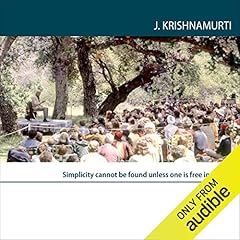
Is There in the Brain Anything Untouched by Culture?
Brockwood Park and Gstaad 1975 - Dialogue 9
No se pudo agregar al carrito
Solo puedes tener X títulos en el carrito para realizar el pago.
Add to Cart failed.
Por favor prueba de nuevo más tarde
Error al Agregar a Lista de Deseos.
Por favor prueba de nuevo más tarde
Error al eliminar de la lista de deseos.
Por favor prueba de nuevo más tarde
Error al añadir a tu biblioteca
Por favor intenta de nuevo
Error al seguir el podcast
Intenta nuevamente
Error al dejar de seguir el podcast
Intenta nuevamente
 Exclusivo para miembros Prime: ¿Nuevo en Audible? Obtén 2 audiolibros gratis con tu prueba.
Exclusivo para miembros Prime: ¿Nuevo en Audible? Obtén 2 audiolibros gratis con tu prueba.
Elige 1 audiolibro al mes de nuestra inigualable colección.
Acceso ilimitado a nuestro catálogo de más de 150,000 audiolibros y podcasts.
Accede a ofertas y descuentos exclusivos.
Premium Plus se renueva automáticamente por $14.95 al mes después de 30 días. Cancela en cualquier momento.
Compra ahora por $9.14
-
Narrado por:
-
Jiddu Krishnamurti
Is There in the Brain Anything Untouched by Culture?—6th August 1975.
- Can there be a total perception which completely heals the brain?
- What benefit has culture?
- Does speech come before thought?
- Is it possible to say something without the operation of thought?
- Is there in the brain anything untouched by culture?
- Is attention a conscious process?
- Is love the factor of profound change?
Los oyentes también disfrutaron:




















Todavía no hay opiniones


